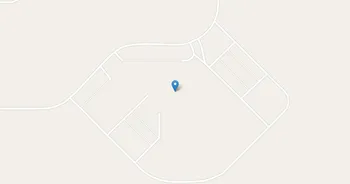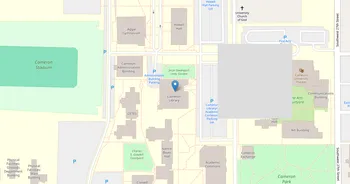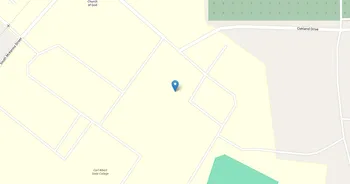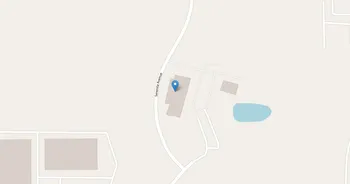Southern Nazarene University (SNU) : Overview, Courses, Scholarships & Rankings
About Southern Nazarene University
Set in Bethany on the edge of Oklahoma City, Southern Nazarene University blends a faith-centered liberal arts core with practical studies. Faculty know their students, and the campus is known for hands-on learning in the arts and sciences and professional fields. And you will find a well used library, collaborative labs and studios, a rec center, chapel space, tutoring, counseling, and a career office that actually follows up.
Student life leans relational, with weekly gatherings, service projects, intramurals, and game days. The culture is welcoming and purpose driven, with campuswide service traditions that connect learning to real needs. Bethany offers small town calm, while Oklahoma City opens doors to internships across healthcare, nonprofits, tech, and the arts. Graduates cite practical experience, mentors who advocate, and an alumni network that helps with first jobs.
Key Institutional Details
Contact & Profile
Academic & Institutional
Academic Programs & Fields of Study
Southern Nazarene University (SNU) offers 46 degree programs across 17 major academic fields, graduating approximately 599 students annually. The most popular fields by graduate volume are Business (7 programs, 219 graduates), Education (9 programs, 150 graduates), Liberal Arts (1 programs, 47 graduates), Kinesiology (2 programs, 38 graduates) and Health (5 programs, 32 graduates). Explore program details, award levels, and graduate demographics below.
Business (7 programs, 219 graduates)
Business Administration, Marketing and Entrepreneurship
| Program Name | Graduates | Gender Distribution | Award Levels | CIP Code |
|---|---|---|---|---|
| Business Administration and Management | 119 |
|
Bachelor's
Master's
|
52.0201 |
| Organizational Behavior | 55 |
|
Bachelor's
|
52.1003 |
| Business Administration | 16 |
|
Master's
|
52.0101 |
| Business Administration and Management | 11 |
|
Bachelor's
Master's
|
52.0299 |
| Marketing Management | 10 |
|
Bachelor's
|
52.1401 |
| Accounting | 4 |
|
Bachelor's
|
52.0301 |
| Finance, General | 4 |
|
Bachelor's
|
52.0801 |
Education (9 programs, 150 graduates)
Educational Sciences, Teaching Methods and Pedagogy
| Program Name | Graduates | Gender Distribution | Award Levels | CIP Code |
|---|---|---|---|---|
| Educational Leadership and Administration | 79 |
|
Master's
Doctorate (R)
|
13.0401 |
| English Language Arts Teacher Education | 37 |
|
Bachelor's
|
13.1305 |
| Curriculum and Instruction | 14 |
|
Master's
|
13.0301 |
| Elementary Education | 6 |
|
Bachelor's
|
13.1202 |
| Early Childhood Education | 5 |
|
Bachelor's
|
13.1210 |
| Music Teacher Education | 4 |
|
Bachelor's
|
13.1312 |
| Social Studies Teacher Education | 3 |
|
Bachelor's
|
13.1318 |
| Mathematics Teacher Education | 1 |
|
Bachelor's
|
13.1311 |
| Physical Education Teaching and Coaching | 1 |
|
Bachelor's
|
13.1314 |
Liberal Arts (1 programs, 47 graduates)
Liberal Arts Education, General Studies and Humanities
| Program Name | Graduates | Gender Distribution | Award Levels | CIP Code |
|---|---|---|---|---|
| General Studies | 47 |
|
Associate's
Bachelor's
|
24.0102 |
Kinesiology (2 programs, 38 graduates)
Exercise Science, Sports Medicine and Physical Recreation
| Program Name | Graduates | Gender Distribution | Award Levels | CIP Code |
|---|---|---|---|---|
| Sport and Fitness Management | 22 |
|
Bachelor's
Master's
|
31.0504 |
| Exercise Science and Kinesiology | 16 |
|
Bachelor's
Master's
|
31.0505 |
Health (5 programs, 32 graduates)
Healthcare Professions, Medical Sciences and Clinical Practice
| Program Name | Graduates | Gender Distribution | Award Levels | CIP Code |
|---|---|---|---|---|
| Registered Nursing | 12 |
|
Bachelor's
|
51.3801 |
| Health Administration and Management | 10 |
|
Master's
|
51.0701 |
| Pre-Physical Therapy | 7 |
|
Bachelor's
|
51.1109 |
| Health and Wellness | 2 |
|
Bachelor's
|
51.0001 |
| Pre-Occupational Therapy | 1 |
|
Bachelor's
|
51.1107 |
Psychology (3 programs, 30 graduates)
Psychological Sciences, Mental Health and Behavioral Studies
| Program Name | Graduates | Gender Distribution | Award Levels | CIP Code |
|---|---|---|---|---|
| Counseling Psychology | 24 |
|
Master's
|
42.2803 |
| Experimental Psychology | 5 |
|
Bachelor's
|
42.2799 |
| General Psychology | 1 |
|
Bachelor's
|
42.0101 |
Human Sciences (1 programs, 25 graduates)
Family Studies, Consumer Sciences and Human Development
| Program Name | Graduates | Gender Distribution | Award Levels | CIP Code |
|---|---|---|---|---|
| Human Development and Family Studies | 25 |
|
Bachelor's
|
19.0701 |
Computer & IT (3 programs, 24 graduates)
Computer Science, Information Technology and Cybersecurity
| Program Name | Graduates | Gender Distribution | Award Levels | CIP Code |
|---|---|---|---|---|
| Network and System Administration | 21 |
|
Bachelor's
|
11.1001 |
| Computer and Information Sciences | 2 |
|
Bachelor's
|
11.0101 |
| Computer Systems Networking and Telecommunications | 1 |
|
Bachelor's
|
11.0901 |
Biological Sciences (3 programs, 14 graduates)
Life Sciences, Biotechnology and Biomedical Research
| Program Name | Graduates | Gender Distribution | Award Levels | CIP Code |
|---|---|---|---|---|
| Biochemistry | 7 |
|
Bachelor's
|
26.0202 |
| Biology and Biological Sciences | 5 |
|
Bachelor's
|
26.0101 |
| Environmental Biology | 2 |
|
Bachelor's
|
26.1305 |
Theology (3 programs, 7 graduates)
Theological Studies, Ministry Preparation and Religious Leadership
| Program Name | Graduates | Gender Distribution | Award Levels | CIP Code |
|---|---|---|---|---|
| Pastoral Counseling | 4 |
|
Bachelor's
|
39.0701 |
| Theological Studies | 2 |
|
Bachelor's
|
39.0601 |
| Youth Ministry | 1 |
|
Bachelor's
|
39.0702 |
Tuition, Fees & Estimated Costs
Overview of tuition rates, housing, and other annual education expenses for undergraduate and graduate students
Financial Aid & Student Support
Summary of scholarships, grants, student loans, and financial aid statistics for undergraduate students
Student Success Metrics
Graduation rates and post-graduation earnings to help assess student outcomes and long-term value of education.
Loan Burden & Repayment Outcomes
Breakdown of loan repayment rates and student debt levels by income and dependency status.
Frequently Asked Questions
Find answers to the most common questions about Southern Nazarene University (SNU)
How much does it cost to attend Southern Nazarene University (SNU)?
The annual tuition at Southern Nazarene University (SNU) is $29,600 for in-state students. When including room and board, books, and other expenses, the total estimated cost is approximately $46,157 for in-state students. Additional costs include room and board $9,560 (on) / $10,926 (off) and books and supplies $1,540.
Data based on IPEDS program completions for 2022-2023 academic year. Tuition and cost estimates are approximate and may not include all fees, personal expenses, or transportation costs.
What academic programs and degree levels does Southern Nazarene University offer?
Southern Nazarene University (SNU) offers 46 academic programs across 17 major fields of study, with available degree levels: Associate's, Bachelor's, Master's, Doctorate (Research).
Most popular program areas include:
- Business Administration, Marketing and Entrepreneurship (7 programs)
- Educational Sciences, Teaching Methods and Pedagogy (9 programs)
- Liberal Arts Education, General Studies and Humanities (1 programs)
- Exercise Science, Sports Medicine and Physical Recreation (2 programs)
- Healthcare Professions, Medical Sciences and Clinical Practice (5 programs)
Data based on IPEDS program completions for 2023-2024 academic year. Numbers reflect programs where students graduated, not all offered programs.
What financial aid and scholarships are available at Southern Nazarene University?
Southern Nazarene University (SNU) provides financial aid to 17% of first-time, full-time students, with average grants of $22,007 and average loans of $6,601.
Average financial aid amounts by type:
- Pell grants: $5,746
- State/Local grants: $6,410
- Institutional grants: $16,649
- Federal loans: $5,365
The university supports 256 students with grants and 150 students with loans annually.
Data based on IPEDS for 2022-2023 academic year. Financial aid amounts and percentages may vary by program, enrollment status, and individual circumstances.
What is the average salary for Southern Nazarene University graduates?
Southern Nazarene University (SNU) graduates earn a median salary of $48,255 after 6 years and $54,951 after 10 years.
The salary range 10 years after graduation spans from $33,529 (25th percentile) to $83,155 (75th percentile), with top earners reaching $93,500 (90th percentile).
Data based on IPEDS for 2022-2023 academic year. Salary data reflects graduates who received federal financial aid (approximately 60% of all graduates). Actual earnings may vary significantly based on program, location, and individual circumstances.
Related Universities




Found something useful? Help others discover it too! Share with friends, on social media, or save for later - every share helps someone find the information they need.